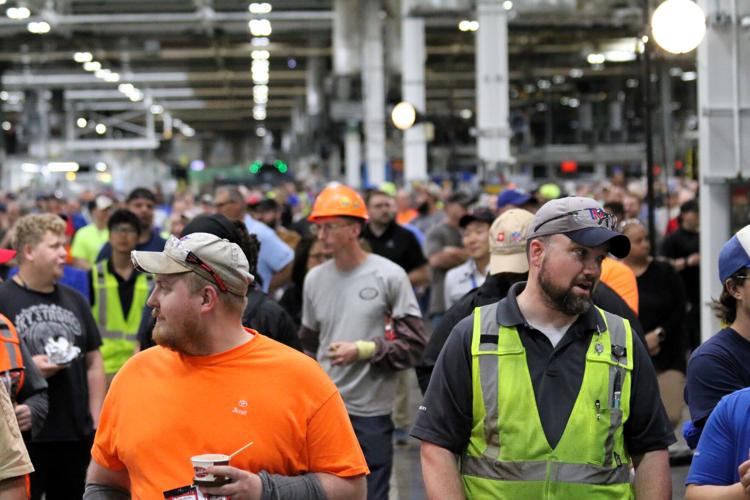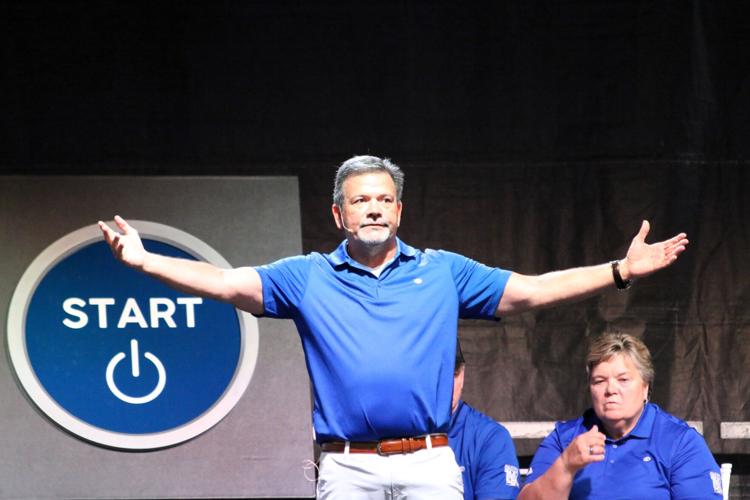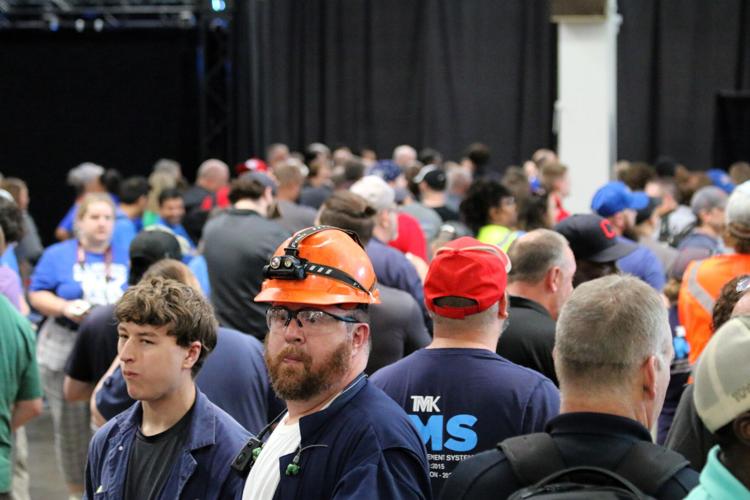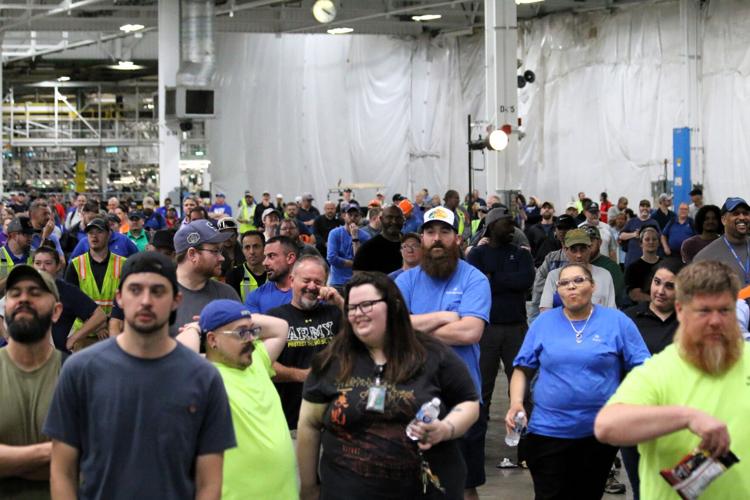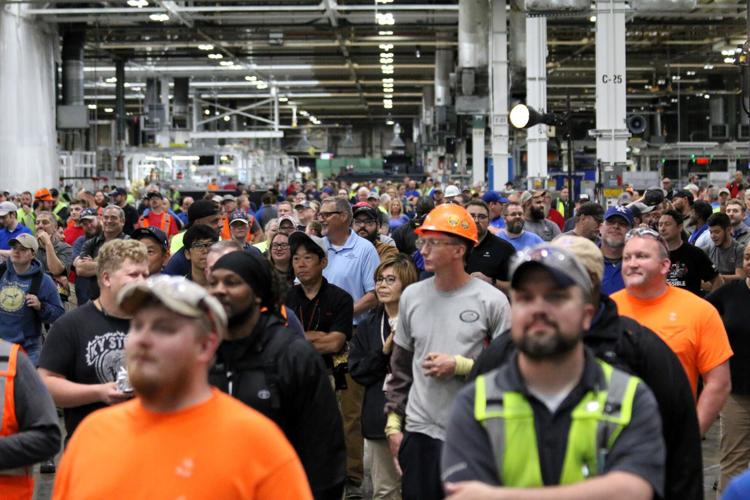GEORGETOWN, Ky. (WDRB) -- The leader of Toyota's flagship plant acknowledged there's likely some interest among its roughly 8,000 rank-and-file workers in joining the United Auto Workers union, though he cautioned workers against taking that step.
"I'm sure there's probably some that may be interested in it, but it's up to them," Kerry Creech, president of Toyota's Georgetown factory, said Wednesday following an event to celebrate the plant's latest product, the all-hybrid 2025 Camry sedan.
Creech, a 34-year veteran of the plant, added: "I'm not anti-union, but I don't feel like we need a union to represent our team members."

Toyota Kentucky President Kerry Creech, the top executive at the company's Georgetown, Ky. factory, speaks to workers during an event to mark the start of production of the ninth-generation Camry sedan on May 8, 2024.
The UAW is on the offensive after securing lucrative labor contracts from the Detroit Three carmakers — Ford Motor Co., General Motors and Chrysler parent Stellantis N.V. — last fall.
The union, whose current membership of 370,000 is a quarter of its 1970 peak, broke through in the historically nonunion South last month when workers at Volkswagen's Chattanooga, Tennessee auto plant voted to join. Next week, workers at Mercedes' Vance, Alabama factory will vote on UAW representation.
When the union announced a $40 million effort to organize workers at foreign carmakers' U.S. plants last fall, it identified Toyota's Kentucky factory — the automaker's largest in the world — as "one of the strongest campaigns."
A spokesman for UAW President Shawn Fain declined to comment. A strategic communications firm involved in the UAW campaign in Kentucky also did not comment.
Kentucky plant near 'top of the list' for UAW
The Georgetown plant is likely "at the top of the list" of auto facilities the UAW would like to add to its fold, said Marick Masters, a business professor at Wayne State University in Detroit and an expert on the UAW.
"It's such a large facility, and Toyota is such a major player in the industry globally. And I think that if (the UAW) were able to demonstrate that they organized Volkswagen, that they organized a Mercedes plant and that they organized Toyota in the U.S., the other targets would become that much more amenable to being approached by the UAW," Masters told WDRB News. "... It could have a domino effect."
However, the plant has remained non-union since its establishment in 1986, and the level of support for the campaign is unclear. The UAW has not revealed what share of the plant's rank-and-file workers have signed union cards, nor petitioned the National Labor Relations Board for an election.
And even getting to an election doesn't ensure success. At Volkswagen in Tennessee, workers rejected union representation in votes held in 2014 and 2019 before finally voting in favor of the UAW last month.
A win next week at the Alabama Mercedes plant would add momentum to the union's effort in Kentucky, Masters said.
Plant manager implies unions threaten jobs
Creech, the Toyota Kentucky plant manager, declined to elaborate on the union effort Wednesday. But in an op-ed published by WDRB News in December, he suggested that unions threaten job security.
"Labor organizations promise big increases when times are good, but they have no proven ability to secure stable employment through industry challenges," Creech said in the piece. "Unfortunately, it's the workers who are left facing layoffs."
Creech also alluded to unions as "outsiders ... coming in to talk about what they think is best for Toyota team members."
"Our team members have the power to speak and advocate for themselves, and they do so every single day. This has served them well over the past three and a half decades," Creech said.
Toyota's Kentucky plant was among a number of nonunion automakers to announce wage increases last fall in the wake of the UAW's contract gains at Ford, Stellantis and GM. The increases in Georgetown, which took effect Jan. 1, amounted to about a 9% hike, according to a document reviewed by WDRB.
The raises resulted in a starting wage of $21.70 per hour for production workers in Georgetown, the company confirmed in November.
By comparison, UAW-negotiated starting rate for new "temporary" hires at Ford is now $21, but it jumps to just shy of $25 once new hires reach full-time status within a maximum nine months. UAW workers have other wage sweeteners such as inflation adjustments and annual profit-sharing bonuses that can be worth more than $10,000.
At Toyota, "We value our employees and their contributions, and we show it by offering robust compensation packages that we continually review to ensure that we remain competitive within the automotive industry," spokeswoman Kim Ogle said in November.
